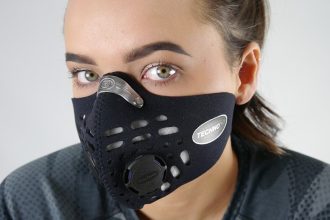The worst thing of the day is tossing and turning in the bed in the middle of the night—despite being physically exhausted. And one of the most basic reasons behind this restlessness is temperature.
Do you also feel difficulty sleeping because your room is too cold or too hot? Well, no need to be worried as this blog will discuss why temperature plays an essential role in protecting you from getting the restful night you deserve.
In addition, we have also elaborated on the ideal temperature for sleep and how it affects your overall sleep experience. Last but not least, we will also elaborate on some reliable sleep tips on how to alter your room into a cozy sanctuary for sleep.
So here you go!
What Is the Ideal Temperature for Sleep?
Your body is instinctively set to find an ideal temperature for sleep. A sleeping room that is too hot as well as too cold can make you restless and agitated. If this situation is prolonged, it can spoil your natural sleeping patterns and create sleep deprivation to adversely affect your emotional, mental, and physical well-being in the long run.
Without any doubt, the temperature is one of the primary reasons for poor sleep quality and numerous sleep disorders.
A 2017 research recommended people face more difficulty in sleeping during the summertime. In summer, it is hot, and it becomes challenging to acquire an ideal temperature for sleeping in their homes.
Different studies elaborate that the best temperature for sleep is 65 degrees Fahrenheit or18 degrees Celsius. A cold bedroom is a comparatively more conducive environment for sleeping than a warmer one.
You do not need to develop a massively different sleeping environment for infants. You can think of bumping up the thermostat one degree or two, but usually, they feel fine anywhere between 60 and 68°F (15.6 and 20°C) as long as they are adequately covered.
Sleep Tips For A Good Night’s Rest
To reap the benefits of sleep, you can transform your bedroom into a tranquil and calm space. Following are the strategies that will help you acquire an ideal sleep temperature for peaceful sleep.
Keep Your Bedroom Dark
Your body is designed to get active and awake when you see anything sparkling or bright. The circadian rhythm gets vigorous, and melatonin production starts when your room is dark and cold, just like a bear cave where it hibernates in winter.
Melatonin is a naturally occurring hormone that affects your sleep-wake cycle.
Before going to bed, you can follow a personal lights-out rule that is quite effective.
If you have a reading habit before sleep, you can dim the lampshade.
You can hang black curtains to stop street lights or sunlight from entering your room. Wearing an eye cover is also a practical tip when you share a bedroom with someone traveling.
In general, the cold does not affect the sleep cycle, but it can create difficulty in making you fall asleep and affect other aspects of your health. If you are too cold while sleeping, your body may change its cardiac autonomic response.
Control the Room Temperature
You can set your home’s digital thermostat to lessen the temperature in the evening automatically. With time, your body will naturally respond to the cooling-down stimuli. Eventually, you will sleep better and earlier during the night. A digital thermostat will be very effective and acetate in measuring the bedroom temperature so you can have a good night’s sleep.
A thermostat can have immense benefits, such as being cost-effective, maintaining a consistent temperature, including advanced features, zoned heating and cooling, and much more. They also optimize your HVAC system and save you time!
The Bottom Line
For a consistent and deep sleep, you need to ensure that the temperature where you sleep is on the cool side. In this case, you get a chance to get a healthy and uninterrupted amount of sleep right when you close your eyes.
Temperature between 60 and 67°F is ideal for healthy sleep. At this temperature, infants should sleep in an appropriate sleep attire. For infants, you can bump up the temperature to some degree but avoid letting them get too hot.















